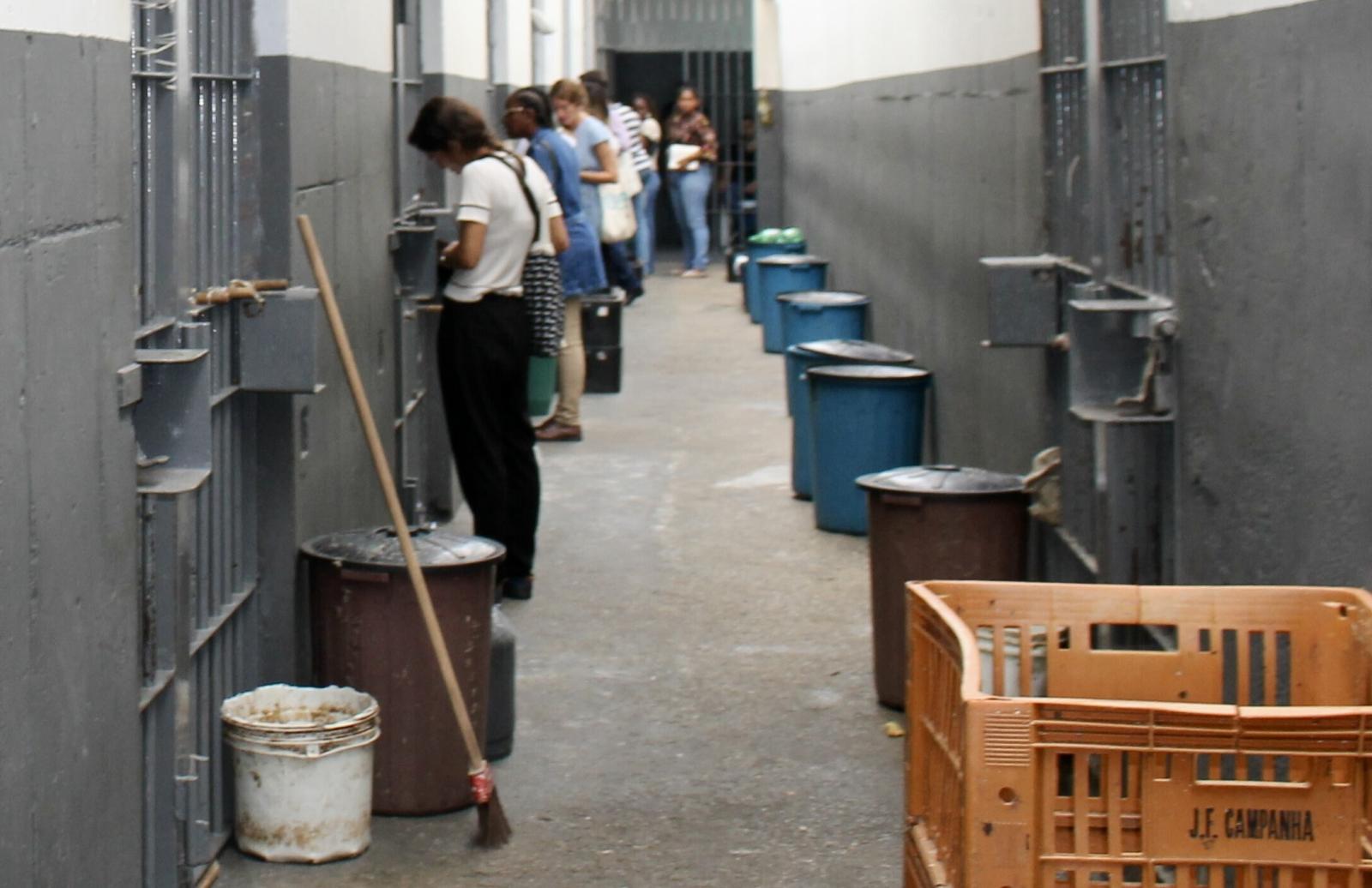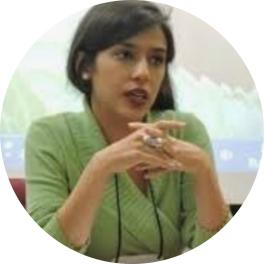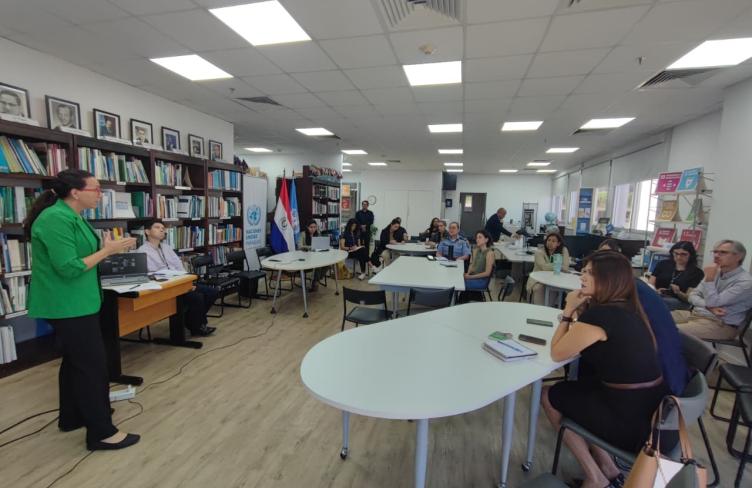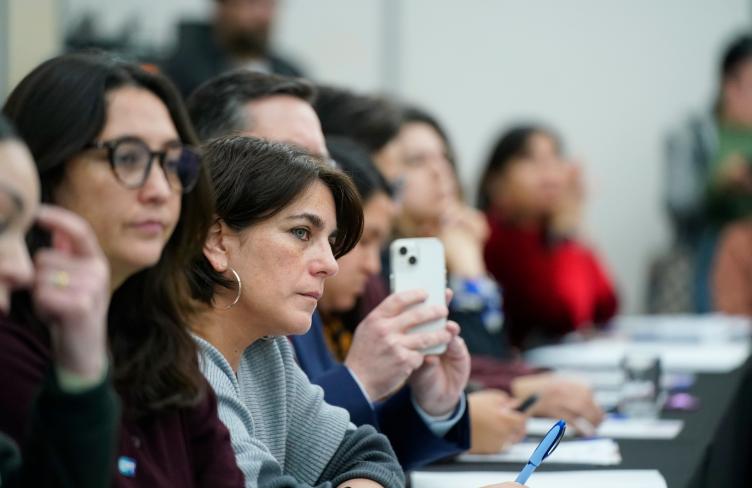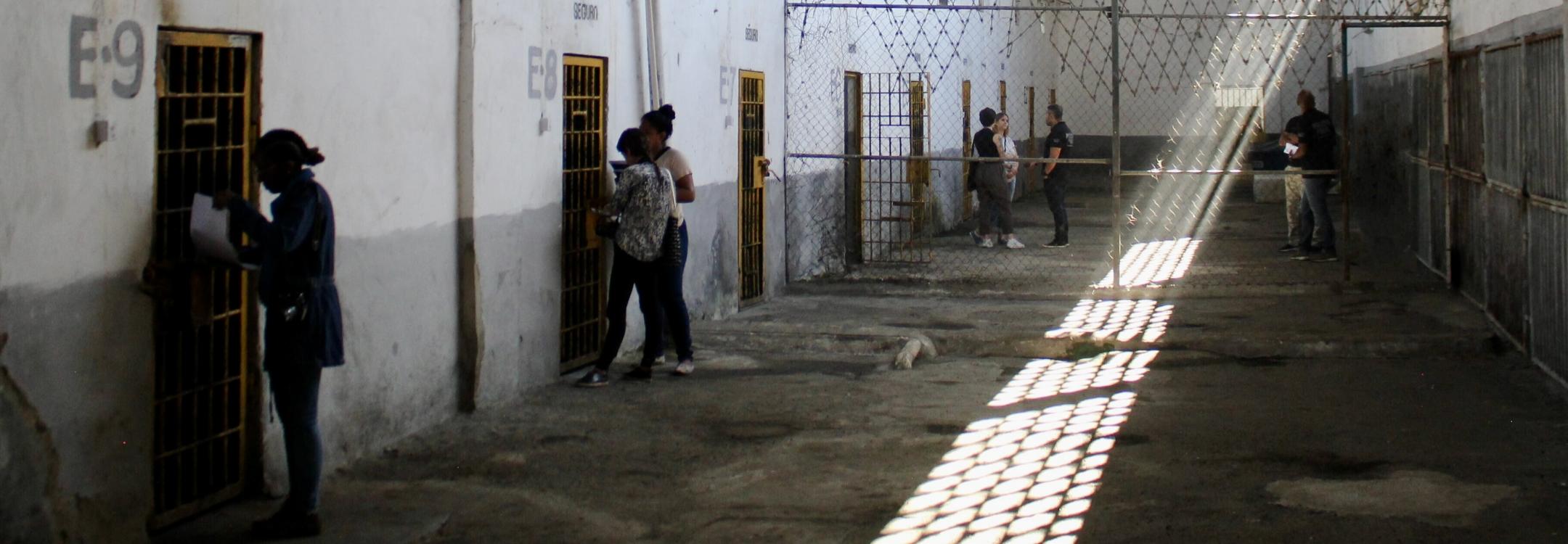
Family members of persons deprived of liberty often follow a well-trodden path to make regular visits to see their loved ones in places of detention. Based on their many visits, they know what is happening in those institutions, they know the experiences of their loved ones and other inmates, and they know the risks that exist there.
Drawing on this rich experience, family members of persons deprived of liberty have been invited to join the official visiting teams of the National Preventive Mechanism (NPM) of Brazil as civil society experts. Carolina Barreto Lemos, member of Brazil’s NPM, explains the value of including family members in their work.
1. In a recent article published by Agência Brasil (Familiares são pilar de combate à tortura em presídios), you describe relatives of persons deprived of liberty as pillars in efforts to prevent and combat torture. What do you mean by this?
There are two key points to this statement. The first recognises the regular presence of family members in places of deprivation of liberty. They monitor the conditions of their family member’s custody and take appropriate measures with the authorities to guarantee their rights in custody. It is also important to note that people deprived of liberty in Brazil have little or no access to external communication channels to forward their complaints. This role is mostly fulfilled by family members and friends.
The second point reflects the importance of the ongoing dialogue between family members and detention monitoring bodies. Due to their regular contact with detainees, family members are vital interlocutors that help guide the monitoring work of competent bodies. They know which locations face the greatest difficulties and which issues require specific attention during visits, allowing for better planning and execution of policies for the prevention of torture.
2. In that same article, you mentioned that the NPM had invited family members of detainees to join your monitoring visits in the capacity of “external experts”, which fits within your powers to invite representatives of civil society organisations, experts and specialists working in related areas to undertake visits with you (article 9, § 2º Law 12.847/2013). What inspired the NPM to implement this approach?
We were inspired by the understanding that people deprived of liberty and their families should be advocates for torture prevention policies. We wanted to find concrete ways to value their knowledge and perspectives on how to improve custodial conditions. So we have taken a broad view of the meaning of "specialist” by understanding that this can include different types of knowledge, from academic knowledge and formal training to knowledge acquired through real-life experience of deprivation of liberty.
Family members, regardless of their formal education, deal daily with the authorities and State bodies responsible for the custody of people deprived of liberty. They have accumulated extensive understanding of the difficulties that detainees experience and the best strategies for responding to them. From our point of view, this practical experience constitutes technical knowledge that must be taken into account when monitoring places of deprivation of liberty.
3. What unique expertise or insights do family members bring to the NPM when you conduct visits, interview detainees and develop recommendations?
Considering the vast number of places of deprivation of liberty and detention in Brazil, the NPM must select those establishments that have the greatest need of our attention. Our dialogue with family members is fundamental to this selection process. Family members are able to provide us with detailed information on the conditions of these establishments so we can make an informed decision when selecting those institutions that will inspect.
Once selected, the NPM must then gather specific information on these institutions so the team knows what to look for during the visit. Family members generally make exceptional contributions in this regard, pointing out, for example, which aspects we should pay more attention to and which areas within the institution we should prioritise during the inspection. This is especially important so we can plan to inspect specific wings, cells or sectors where the structural conditions or the treatment of detainees can be particularly cruel or inhuman.
4. What training or support do family members need before they join the NPM team on an official visit?
All specialists who are invited to join the NPM team on official visits – whether or not they are family members – must participate in previous meetings and dialogue with the NPM, where we explain our methodology of work. We discuss how we structure our visits and give instructions on how to proceed during the visit, including how to behave, what to wear, and what they should or should not bring with them. In addition, we provide all specialists with the NPM’s inspection tools, such as our monitoring methodology guidelines, checklists and questionnaires. This material is reviewed and explained during inspection preparation meetings.
When we invite family members to join the visiting team, we also conduct a risk evaluation with them. To preserve their safety and the safety of people deprived of liberty, family members never participate in visits to the institutions where their loved ones are in custody. Instead, they are invited to participate in visits to institutions where they have no history of direct contact with persons deprived of liberty, as long as they feel that this is safe for them and for their loved ones.
5. Are there risks involved to family members when they report or make public allegations of torture or ill treatment? What kind of retaliations do they or their loved ones face?
Retaliation against family members - for example, when they report or make public allegations of torture or ill-treatment - happens frequently. We have reports of retaliations that include cancellation of the family member’s visit without a plausible justification, acts of physical or psychological aggression against the person deprived of liberty, the loss of work or study by the person deprived of liberty, isolation of the person deprived of liberty through placement in disciplinary punishment spaces, and the transfer of the person deprived of liberty to an institution far away from their family's place of residence.
However, the NPM has also noted that some family members become popular leaders who mobilise public opinion and can engage State bodies in dialogue on important issues. This can have a positive effect in preventing these acts of retaliation because, if it is carried out responsibly, this profile helps position family members as legitimate actors in the public space, which in turn can help bring possible acts of retaliation under greater social control.
